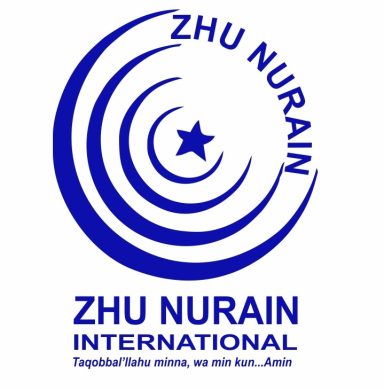We make your spiritual journey simple, fulfilling and rewarding!
What we do best
We offer Umrah Pilgrimage all-year-round: We offer bespoke services to suit all budget needs for pilgrims intending on going for Umrah. Umrah is performed every day throughout the year and also during the blessed month of Ramadan due to its immeasurable rewards. Umrah is an Arabic word which means “to visit”. Unlike Hajj, it is not obligatory. Please note that the information contained herein is very brief. We will guide you step-by-step throughout the process.
However, it was recommended by Mohammed (Sollalahu Alehi wa salam). The Prophet (Sollalahu Alehi wa salam) said, “Umrah is an expiation for the sins committed (between it and the previous one). And the reward of Hajj Mabrur (the one accepted by Allah) is nothing except Paradise.”
Getting Ready: Under Sharia law, a pilgrim must first assume the state of Ihram. This is a state of purification achieved by completing cleansing rituals, wearing the prescribed clothing and abstaining from certain actions. This must be attained when reaching a Miqat – a principal boundary point in Mecca, like Zu ‘l-Hulafa, Juhfa, Qarnu ‘l-Manāzil, Yalamlam, Zāt-i-‘Irq, Ibrahīm Mursīa, or a place in al-Hill. Different conditions, however, exist for air travellers, who must attain the state of Ihram; once they enter within a specific perimeter in the city. Umrah requires pilgrims to perform four key rituals; attain the state of Ihram, tawaff, sa’i and shaving/trimming hair.
Once in a state of Hiram, the pilgrim makes the intention to perform Umrah by saying: “Labbayka Umrah” or, “Labbayka Allahumma Umrah”. This is then followed by the continuous recitation of the talbiyyah until arrival in Makkah. Men should recite this in a loud audible voice, while women should say it silently but audibly too.
“Labbayka Allahumma Labbayk, Labbayka La Shareeka Laka Labbayk, Innal-hamda, wan-n’imata, Laka Wal-mulk, La Shareeka Lak”
Meaning: “Here I am at your service. O Lord, here I am. Here I am. You have no partners. Here I am. Truly, all praises and favours belong to You, and the dominion over all things. You have no partners.”
While in the state of ihram for Hajj or Umrah, the following acts are obligatory:
- To faithfully observe all that Allah has made obligatory e.g. the daily prayers at their proper times.
- To avoid what Allah has prohibited e.g. wrong-doing, quarrelling and committing sins.
- To guard against injuring other Muslims by deeds or by words.
- To abstain from what is prohibited during the state of ihram e.g.
a. Not to cut your nails or pull out hair. There is no blame on you if these breaks or come off by accident.
b. Not to use scent/perfume either on clothes or hair, body, food or drink. There is no harm if the effect/odour of the fragrance applied before putting on ihram remains afterwards.
c. Not to kill, frighten or assist in hunting any land game.
d. Within the vicinity of Al-Haram, no one, whether in the state of ihram or not, is allowed to cut trees, pluck vegetables or collect a lost property except for the sake of identifying it for its owner. The Messenger of Allah (peace be upon him) instructed it.
e. Not to propose to a woman or contract marriage either for oneself or on behalf of others.
f. Sexual intercourse is prohibited, and so is touching the opposite sex with desire.
The Rites of Umrah in Brief: On arrival at the Holy Mosque in Makkah, it is desirable to proceed into the Holy Mosque from Bab Al-Salam, if possible and practicable. The pilgrim should advance their right foot first and recite the dua below:
“A’udhu billahi-l-‘adheem, wa wajhihi-l-kareem, wa sultaanihi-l-qadeem, min-ashaytaani-rajeem; bismillah. Allahumma Salli ‘ala Mohammed wa ‘aalihi wa sallim; Allahumma ighfir lee dhnubi, w-aftah lee abwaaba rahmatik”.
Meaning: “I seek refugee in Allah the Almighty and His Noble Countenance and His Eternal power from Satan. In the name of Allah. O Allah, bestow Your peace and blessings on Mohammed and his family. O Allah, pardon my sins and open the gates of Your mercy for me“.
Please note that the supplication is not specific to entering the Holy Mosque in Makkah. It can be recited on entering all mosques. On entry, the pilgrim looks at the Holy Ka’aba while raising his arms in supplication to recite:
“Allahumma zid hadha-l-bayta tashreefan, wa ta’dheeman, wa takreeman, wa mahaabatan, wa zid min sharafihi, wa karamihi mimman hajahu aw i’tamarahu tashreefan, wa ta’dheeman, wa takreeman, wa birran”
Meaning: “God Almighty, bestow more honour, glory, respect and awe on this House; bestow more honour and respect on whoever comes to it for Hajj or Umrah out of honour, respect, glory and devotion.”
Tawaff is circling the Ka’aba in an anti-clockwise direction seven times. For men, it is recommended to do the first three circuits at a hurried pace, followed by four rounds at a more leisurely pace. This is followed by Sa’i between safah and mar’wah inside Masjid Harram in Makkah – a walk to commemorate Haggai’s search for water for her son (Ishmael), and God’s mercy in answering prayers. Pilgrims conclude the pilgrimage with halq, a partial or complete shortening of the hair. Umrah is sometimes considered the “lesser hajj” because it is not compulsory, but highly recommended. While making your tawaf, you may praise Allah and make supplications to Him in any words or language. It is preferable to end each with this dua:
“Rabbana, atina fid-dunya hasanatan, wa fil-akhirati hasanatan, wa qina adhaban-nar.”
Meaning: “Our Lord, give us good in this world and good in the hereafter, and save us from the punishment of the fire”.
The pilgrim thereafter proceeds to as-Safa. While facing the Ka’aba, praise Allah, raise your hands, and say “Allahu Akbar” three times. Then make supplication to Allah. Then say the dua below three times:
“La ilaha illal-lah, wahdahu la shareeka lah,
“Lahul-mulk wa lahul-hamd, wa huwa ‘ala kulli shayin qadeer,
“La ilaha illal-lah, wahdahu, anjaza wadehu, wa nasara abdahu, wa hazama al ahzab wahdahu.”
Meaning: “There is no deity except Allah, The One without a partner. He has dominion over all things. His is all praises, and He is powerful over everything. There is no deity except Allah, completed is His promise, supported His slave and defeated the parties Alone”.
The rites of Umrah are generally completed within a few hours, in comparison to Hajj, which takes a few days. It is also not meant to be interpreted as a substitute for Hajj. However, both are demonstrations of the solidarity of Muslims and complete submission to Allah.
Hajj Mabroor in brief: Hajj is one of the essential pillars of Islam. The literal meaning of the word “Hajj” is heading to a place for the sake of visiting. In Islamic terminology, Hajj is a pilgrimage made to Kaaba, the “House of Allah”, in the sacred city of Makkah in Saudi Arabia. Muslims and Muslimah are enjoined to perform at least one hajj in a lifetime. There are three ways of performing the Hajj:
- Hajj al-Tamatt’u (interrupted)
- Hajj al-Qiran (combined)
- Hajj al-Ifrad (single)
Al-Bukhaari (1773) and Muslim (1349) narrated from Abu Hurayrah (may Allah be pleased with him) that the Messenger of Allah (blessings and peace of Allah be upon him) said: “…an accepted Hajj brings no reward but Paradise.”
Also, At-Tirmidhi (738) and an-Nasaa’i (2631) narrated that ‘Abdullah ibn Mas‘ood said: “The Messenger of Allah (blessings and peace of Allah be upon him) said: “Make the Hajj and ‘Umrah follow each other closely, for they remove poverty and sins as the bellows removes the dross of iron, gold and silver, and an accepted Hajj brings no less a reward than Paradise.”
The pilgrimage rites begin on the 7th day of Dhū al-Ḥijjah (the last month of the Islamic year) and end on the 12th day. The hajj is incumbent on all Muslims who are physically and financially able to make the pilgrimage; and if their absence will not place hardships on their family.
Hajj al-Tamatt’u: This means entering into Ihram for the Umrah during the months of Hajj i.e., the months of Shawwal, Dhul-Q’idah and the first ten days of Dhul-Hijjah; to take off Ihram after performing the Umrah, and then to take Ihram again for the Hajj from Makkah on the 8th day of Dhul-Hijjah during the same year in which the Umrah was performed.
Hajj al-Qiran: This denotes entering into the Ihram for both the Umrah and the Hajj at the same time, while not taking off the Ihram until the day of Sacrifice (the 10th of Dhul-Hijjah). Alternatively, one may first enter into the state of Ihram for the Umrah, and before beginning one’s tawaf may make the intention of Ihram for the Hajj as well.
Hajj al-Ifrad: This signifies donning Ihram for Hajj either from the prescribed station of Ihram (al-miqat), or from Makkah if one resides there, or from a place in between al-miqat and Makkah.
Anyone incapable of performing the hajj by himself or herself, due to various health reasons, incapacity or old age, can perform the hajj by proxy. This will be done by appointing a relative or a friend to go on the pilgrimage to “stand in” for such a person. Hajj is associated with the life of Mohammed (Sollalahu Alehi wa salam) in the 7th century AD. However, the ritual of pilgrimage to Makkah is considered by Muslims to stretch back thousands of years to the time of Prophet Ibrahim. During Hajj, pilgrims join processions of millions of people, who simultaneously converge in Makkah for the week of Hajj, while performing a series of rituals.
Every pilgrim walks counter-clockwise seven times around the Ka’aba, which is the direction of prayer for Muslims. Pilgrims also trot (walk briskly) back and forth between the hills of Safah and Mar’wah seven times, and drink from the Zamzam well. They later proceed to the plains of Mount Arafah via Minna to stand in vigil, spend a night in the plain of Mudzalifah, and perform the symbolic stoning of the three Jamarat. After offering the sacrifice of an animal, pilgrims are required to shave their heads. Then they celebrate the three-day global festival of Eid Al’hada.
Our specialist knowledge, passion and experience allow us to guide pilgrims under the shariah on all the rites and rituals of Hajj and Umrah. We offer services which are exceptional at the most affordable rates.
Al’aqsah Pilgrimage: Please watch out for further details and updates
We need your consent to load the translations
We use a third-party service to translate the website content that may collect data about your activity. Please review the details in the privacy policy and accept the service to view the translations.

